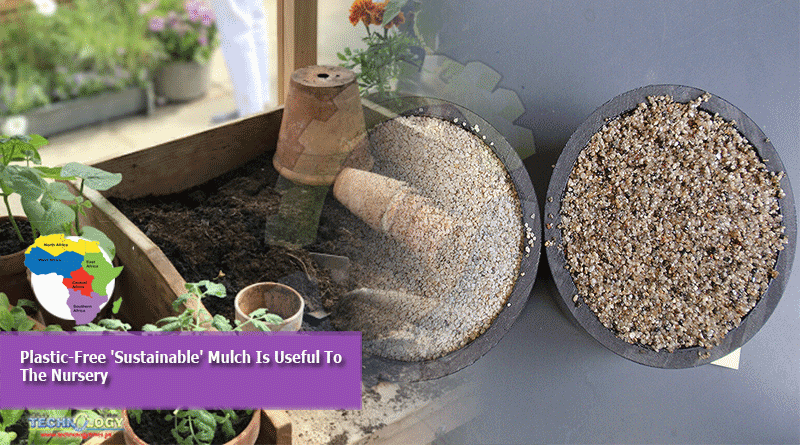Researchers experimented with a sustainable, plastic-free type of mulch: soybean-oil coated sand, useful to the nursery industry and other commercial producers

The study was published by the Social Science Society of America.
Researchers say the new mulch, if commercialized, may be useful to the nursery industry and other commercial producers who currently rely on plastic mulch to regulate soil temperature, reduce weeds and minimize water loss. The experiments, they say, may also pave the way for further research into alternative mulches.
Initial experiments showed soil treated with the soybean-oil coated sand had 96% less water loss through evaporation compared to bare soil, which researchers call a victory.
“I think a lot of industrial-level farmers could really benefit from this research in the long term,” said Jesse Barnes, lead researcher in the study and a doctoral student studying sustainable agriculture at the University of Nevada.
According to Barnes, in many parts of the U.S., about 90% of agricultural mulch used is made of plastic. Barnes said he had the idea to invent a new kind of mulch when studying the environmental impacts of plastic mulch.
Recent studies show that plastic agricultural mulch, made of polyethylene, can break apart when exposed to the elements, impacting water quality, degrading soil quality over time, limiting microbial life in soil and even allowing microplastics to enter the food chain.
Perhaps the even bigger issue is that piles of plastic mulch ultimately end up in landfills, said Michael Nicholl, co-researcher in the study and associate professor at the University of Nevada.
With more farmers and nursery growers seeking ways to be sustainable, Nicholl said he sees on opportunity for researchers to invent new mulches. Nicholl and Barnes say there are many existing organic-waste mulches, such as straw and wood chips, but they can be more unpredictable in terms of evaporation rates.
In their experiments this year, Barnes and Nicholl mixed together sand and soybean oil, heated the mixture to partially polymerize the oil, then allowed it to cool. They then washed and dried the sand.
The experiments proved successful, but the researchers say they’ve only scratched the surface and many questions remain.
“We’re looking at the next steps now. I’m interested in the degradation of the material, how it ages in real-world conditions. We basically did lab conditions for three weeks. But this is Las Vegas — no rain. And anyway, it was indoors with no bugs. It’s time to take these experiments to the next level,” said Nicholl.
The researchers intend to test the durability and longevity of their new mulch in various settings, including in arid and temperate environments and in biologically active soils. They also plan to explore other oil-coated materials besides sand.
Both researchers say they hope others will follow suit in experimenting with sustainable mulches.
“There’s huge room for growth in this field. I really hope others pick this up,” said Barnes.
Originally published at capital press
